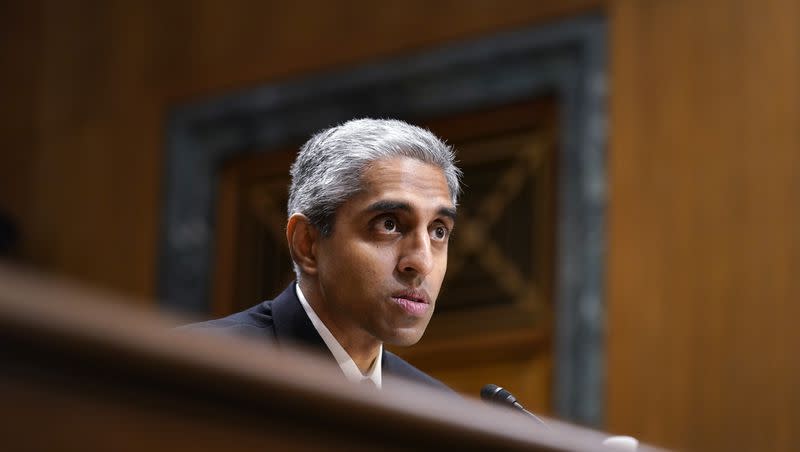Opinion: Loneliness is a killer

Some of my loneliest times (not counting junior high) were when I was surrounded by people. Little people. Sometimes medium people, but no big people. I was desperate for adult conversation that didn’t revolve around eating habits, diapers and grocery lists. I was desperate for friends, for social connection.
Turns out, I was not alone. Today, half of all U.S. adults say they feel lonely. That feeling cuts across all demographics — from the old to the young, the wealthy to the poor, urban to rural and from sea to shining sea. It’s not always a benign part of life, either. Loneliness can kill.
While the problem of loneliness has been researched for years, recent changes beginning before COVID-19 and accelerating into the years of the pandemic show some alarming trends. So alarming, in fact, that U.S. Surgeon General Dr. Vivek H. Murthy issued an advisory, or a “public statement that calls the American people’s attention to an urgent public health issue” that requires immediate action. The social fabric of our society is not just fraying. It’s ripping.
People who are lonely suffer from depression, anxiety and suicidal ideation — one study of 500,000 men found that those men who scored high on loneliness had double the risk of suicide. There are other health consequences as well. People who are lonely are more likely to develop diabetes, heart problems, high blood pressure, strokes and dementia. They are less likely to recover from surgery, cardiac events and other medical incidents. The risk of loneliness leading to premature death is equivalent to smoking 15 cigarettes a day.
“Social connection is as fundamental to our mental and physical health as food, water and sleep,” said Murthy. In other words, social connection is critical to our human experience. We are literally hard-wired to connect to others.
Related
In a society that values individualism, it might need to be said directly: social connection cannot be done alone. While there are many ways we can connect, the surgeon general’s advisory says they generally fall into three categories: structure, function and quality. Structure is the number and variety of relationships, along with the frequency of interaction. Function is the degree to which we rely on others for various needs, and quality, as you might suspect, is the degree to which the relationships are positive, helpful and satisfying (or not).
I saw a meme recently that described an easy way to categorize your relationships as “Two (root) beers and a puppy.” Would you go out to have a (root) beer or two with this person and would you let them watch your puppy for the weekend. Some people fall in the no/no category, some yes/no or no/yes and some are yes/yes. Keep those yes/yes people in your life.
Murthy names six pillars he believes we need to advance social connection in this country. First, we need to strengthen the social infrastructure in local communities, including for those in marginalized communities. Second, we need to enact pro-connection public policies. Third, the health sector needs to be mobilized and trained. Fourth, we need to reform digital environments, including requiring data transparency, implementing safety standards and supporting pro-connection technologies. Fifth, we need to deepen our knowledge and sixth, we need to build a culture of connection.
This is an all-hands-on-deck public crisis. That means local, state and national governments, the health care system, public health professionals, researchers, the nonprofit/philanthropic sector, schools, workplaces, tech companies, media, parents and individuals all have a role to play.
We need to be proactive in connecting, sharing, listening and serving. That can mean calling a friend, inviting a neighbor to dinner, being present when listening to someone (put your phone down if you are face-to-face) and seeking for opportunities to serve. If you need ideas to help jumpstart your efforts, you can go to Show Up Utah or JustServe.
We need connection, and our nation needs healing. Failure to do so means our society will pay an increasingly high price until we can no longer stand “indivisible, with liberty and justice for all.”
Holly Richardson is the editor of Utah Policy.

